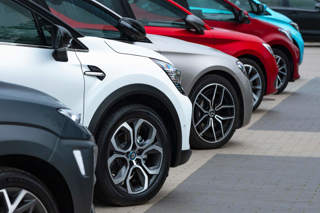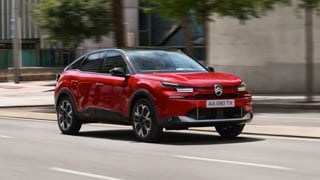The British Vehicle Rental and Leasing Association (BVRLA) predicts that 2018 will be the year diesel loses its position as the most popular fuel for new fleet registrations.
It told delegates at its Industry Outlook Conference that the fuel type will be overtaken by petrol, as more company car drivers, particularly non-essential users, make the switch to petrol and hybrid.
In the year to November, diesel's share of fleet stands at just over 53%, compared to 61% in 2016. Hitachi Capital Vehicle Solutions, number nine in this year’s FN50, has seen its diesel registrations drop from around 70% to 50% this year.
“That amount of change is phenomenal,” said managing director Jon Lawes. “I know it’s the same sort of trends across our industry so how do we cope with that significant amount of change?
“I’m worried about the pace of change but actually I think it’s the right thing and the best way to deal with change is embrace it and get on with it.”
Lawes predicts Hitachi will “at least double” the size of its electric vehicle (EV) fleet next year and that hybrids will be “a lot more than that”.
“I’ve seen the most significant amount of change in perception of electric vehicles, more so in hybrid, in the past eight months,” he said.
“We’ve talked about EVs for five, six, seven years, but actually it’s probably only this year where it’s starting to get serious. Before it was probably more of a token effort, now it’s much more serious.”
Tim Porter, managing director of Lex Autolease, is also predicting a surge in electric and hybrid numbers over the next 18 months, although he points out that this is from “a very low base”.
He expects the number of pure EVs on Lex Autolease’s fleet to rise 10-fold from “probably a couple of hundred” to “a couple of thousand”.
Porter believes the news coverage around diesel is pushing more people to look at alternatives, but the “critical driver” is more pure EVs becoming available with a greater range in the £25,000-£30,000 bracket.
Pure EVs in the £50,000-£70,000 bracket are “interesting and attractive to the top end of the personal market – the directors in firms”, he said.
Meanwhile, Porter envisages the number of hybrids on Lex Autolease’s fleet rising from 15,000 to 20,000-25,000 in the next 12-to-18 months.
What impact will the move away from diesel have on future values? Andrew Mee, senior forecasting editor, cars, at Cap HPI, paints an optimistic picture for the next five years.
“For diesel cars, what is going to happen will vary by sector; there will be a different outcome for small vehicles compared to large SUV or towing vehicles,” he said.
“It will also vary by time over that five-year period but, overall, we think that level of year-on-year change, on average, is going to be pretty much as diesels have behaved for the past few years.”
Mee also believes that any decrease in demand for used diesels, as clean air zones start to bite, will be offset by fewer used diesels coming back into the market as fewer cars are registered.





















Login to comment
Comments
No comments have been made yet.